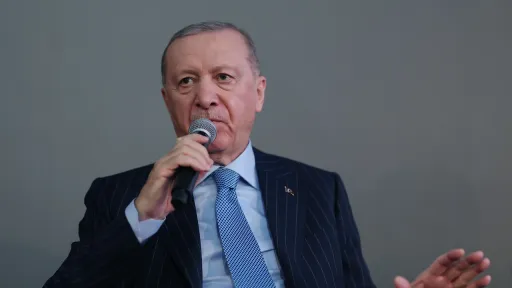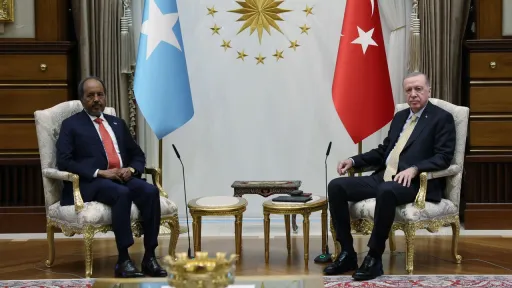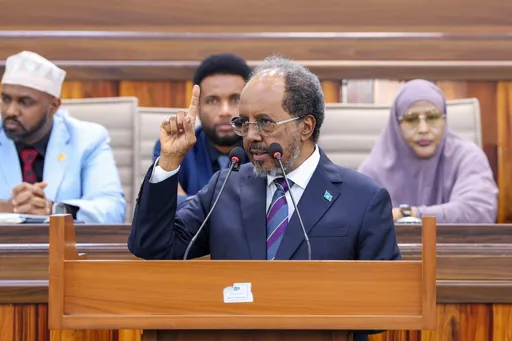By Fathiya Bayusuf
Depression. Drug abuse. Quitting studies. Contemplating suicide. Naim Sultan has been through hell and back.
He was a regular boy at a Mombasa high school when he lost his mother in 2017. That was the tipping point - the numbing shock throwing him off the rails, so much so that he nearly ended up joining a criminal gang.
In walked Babu Ali, administrator of the Mandhry mosque and founder of the Mandhry mentorship programme for youth in Mombasa's Old Town.
He took Naim, then an emotional wreck, under his wing and sent him back to school. Progress was slow but steady. After years of regular counselling and introducing him to sports and social work, Naim is transformed.
Not only has he completed university, but the strapping Kenyan is also a successful businessman.
Wasted youth
Naim’s is a heartwarming story. Thousands like him, some as young as 10, are struggling with similar problems in Mombasa and veering off to the wrong path.
Lack of employment, drug abuse and mental health issues are among the biggest problems that the youth of Kenya’s second-largest city face.
Some of them drop out of school, take to narcotics, and join criminal gangs that terrorise residents of pockets like Kisauni, Likoni and Old Town.
A few even become part of armed outfits.
"Many Old Town youths tend to give up easily and fall prey to indecisiveness and bad habits," Babu Ali tells TRT Afrika.
Righting the wrong
Fifteen years ago, stakeholders at the Mandhry mosque took note of the malaise. A motley group of preachers, doctors, community leaders and businessmen joined hands and, every Friday evening, started advising, motivating and encouraging the youth to shun their vices and continue studying.
"We began with seven or eight children. Then the class started swelling, and soon there were 25 of them. Word of mouth spread in the neighbourhood, and within months, 100 children were jostling for space. The motivational sessions became extremely popular, and there was no more space in the mosque," recounts Babu Ali.
The model that has mainstreamed so many Kenyan youths through intensive mentorship and counselling programmes is now offered in different mosques, churches, some orphanages and even schools in Mombasa County.
There is particular stress on participation in sporting activities and taking an active part in social work to keep the youth engaged and prevent them from going astray.
In churches, preachers sermonise in collaboration with psychologists and youth leaders, especially during school holidays.
"Every three months, we speak to these young men, and through the sessions, we get to know the challenges they face — mainly drugs and unemployment," Lameck Onoka, a Christian youth leader and a teacher by profession, tells TRT Afrika.
"Earlier, they lacked good mentors. Now, they seem motivated enough to improve their lives: some have found succour in religion, and others have returned to the mainstream and married.”
Lingering challenges
It hasn't been smooth sailing, though. Not all young men are interested in these reformative programmes. “At an impressionable age, if you are associated with the wrong kind of friends, they will drag you to the path of vice," says Immaculate Kyeo, an engineering student at the Technical University of Mombasa.
Immaculate has been through the entire grind: he went astray at a young age and then met the "right kind of people".
“I was persuaded to join counselling programmes in the church, and now I have been able to understand myself — my strengths and weaknesses — and find peace of mind. I have also connected with people who have been able to help me professionally," he says.
The occasional lack of funds is a stumbling block but not a deterrent for the mentors.
Concerted effort
Various universities and schools in Mombasa now offer career guidance programmes. Teachers, psychologists, civil servants, journalists and entrepreneurs began visiting these centres this March to counsel students about clever studying methods and the importance of mental health.
The idea is to wean them off drugs and prep them for a successful future.
"I was a teacher at Alidina Visram Boys' High School. I felt my students needed mentoring because they were facing academic challenges at school and financial problems at home, leading to enormous stress that was leading to poor results," Elye Abdul Halim, now the principal of Eman Girls High School in Mombasa, tells TRT Afrika.
The results are for all to see. Following a pep talk from the mentors, Halim discerns a significant change in student behaviour and discipline. Their academic results have improved, and so has their creativity. The bond among themselves and with their teachers has deepened.
As the Mombasa youth enjoys the fruit of their labour, there's no looking back. The likes of Halim are determined, more than ever, to push on with these reformative programmes to transform the youngsters into leaders of tomorrow.
























